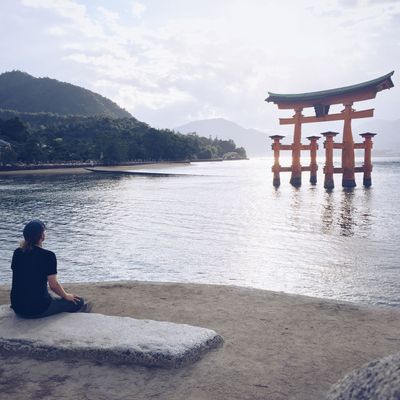
Two weeks in Japan is a hell of a trip: burn your tongue on octopus-filled pancake balls, drink beers on the bullet train, soak in mountain saunas, hike in enchanted woods, and crash in the back of a Tokyo dance club while waiting for the subway to run again. Flying back across the Pacific, you realize that it didn’t feel like just a fortnight; at least a month of living had occurred.
That is, at least, in my experience — I got back from Tokyo yesterday afternoon, and it feels like I’ve been away for ages. That expansion of time points to a weird psychological truth: While the clock on your wrist attests to how seconds pass objectively, the brain in your head has a deeply individual experience of time. Psychologists call this “time’s subjective expansion,” and one way it happens is with the “oddball effect.” If you were to follow one telling experiment and sit someone down in front of a computer monitor and briefly flash the same image of a shoe multiple times and a picture of a flower just once, they’ll say that the flower was onscreen longer — even though the duration of display is identical.
“Monotony collapses time; novelty unfolds it,” writes Joshua Foer in Moonwalking With Einstein: The Art and Science of Remembering Everything. “You can exercise daily and eat healthily and live a long life, while experiencing a short one.” When you’re backpacking around a foreign land, the hours stretch out; when you’re rising and grinding through the workweek, a week goes by in a day. It’s also why childhood went so slowly, and adulthood goes by fast.
Back in 1890, the beloved American psychologist William James wrote that “the foreshortening of the years as we grow older is due to the monotony of memory’s content.” When you’re a kid, you’re experiencing new things every hour of every day. But with the routine brought along by adulthood, the days and weeks smooth out into “contentless units,” he writes. “In youth we may have an absolutely new experience, subjective or objective, every hour of the day,” he writes. “Apprehension is vivid, retentiveness strong, and our recollections of that time, like those of a time spent in rapid and interesting travel, are of something intricate, multitudinous and long-drawn-out.” That’s the magic of travel: being in bewildering, enchanting places awakes that childhood wonder. Immersed in novelty, you pay attention to more, and the days get longer. Life expands.




